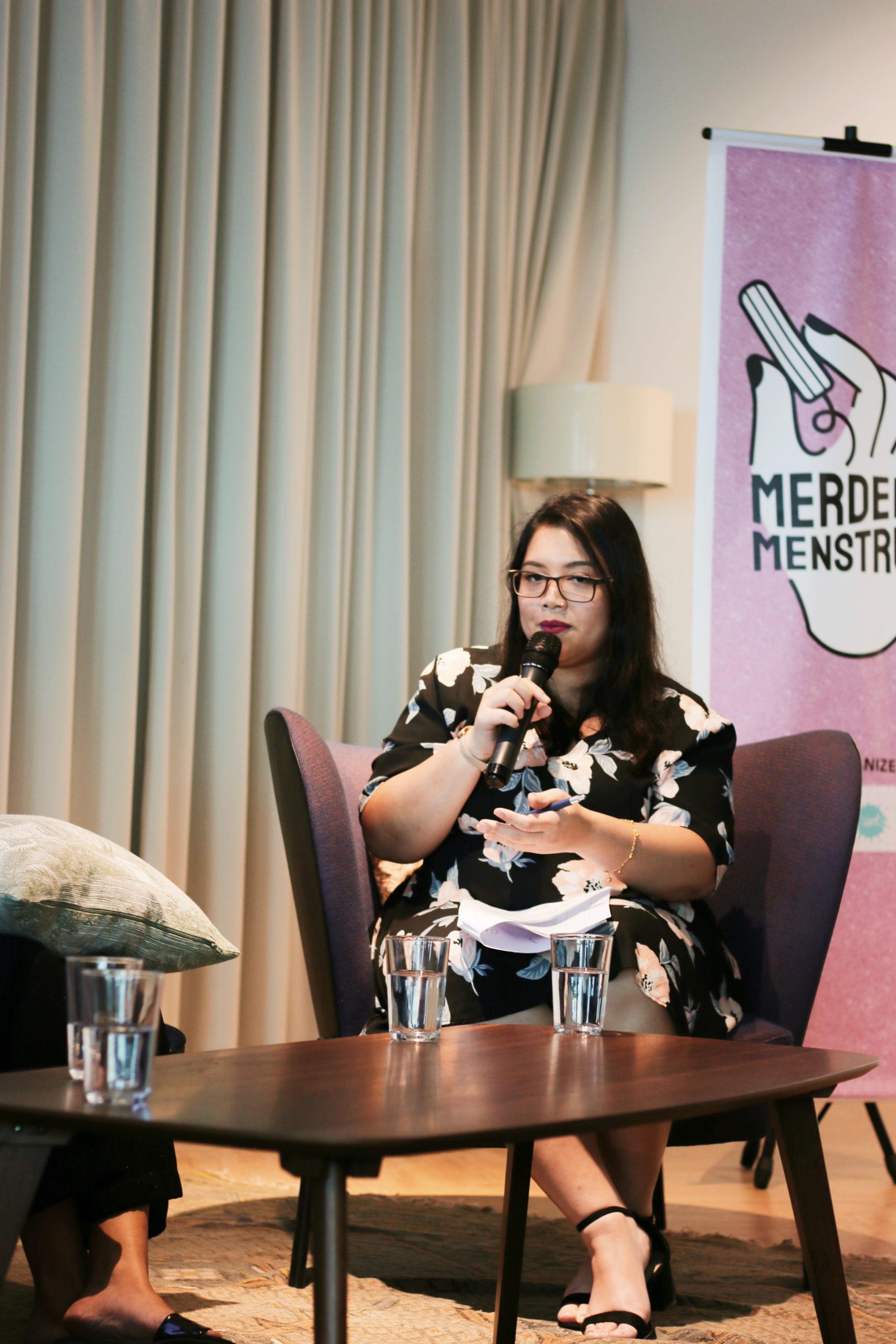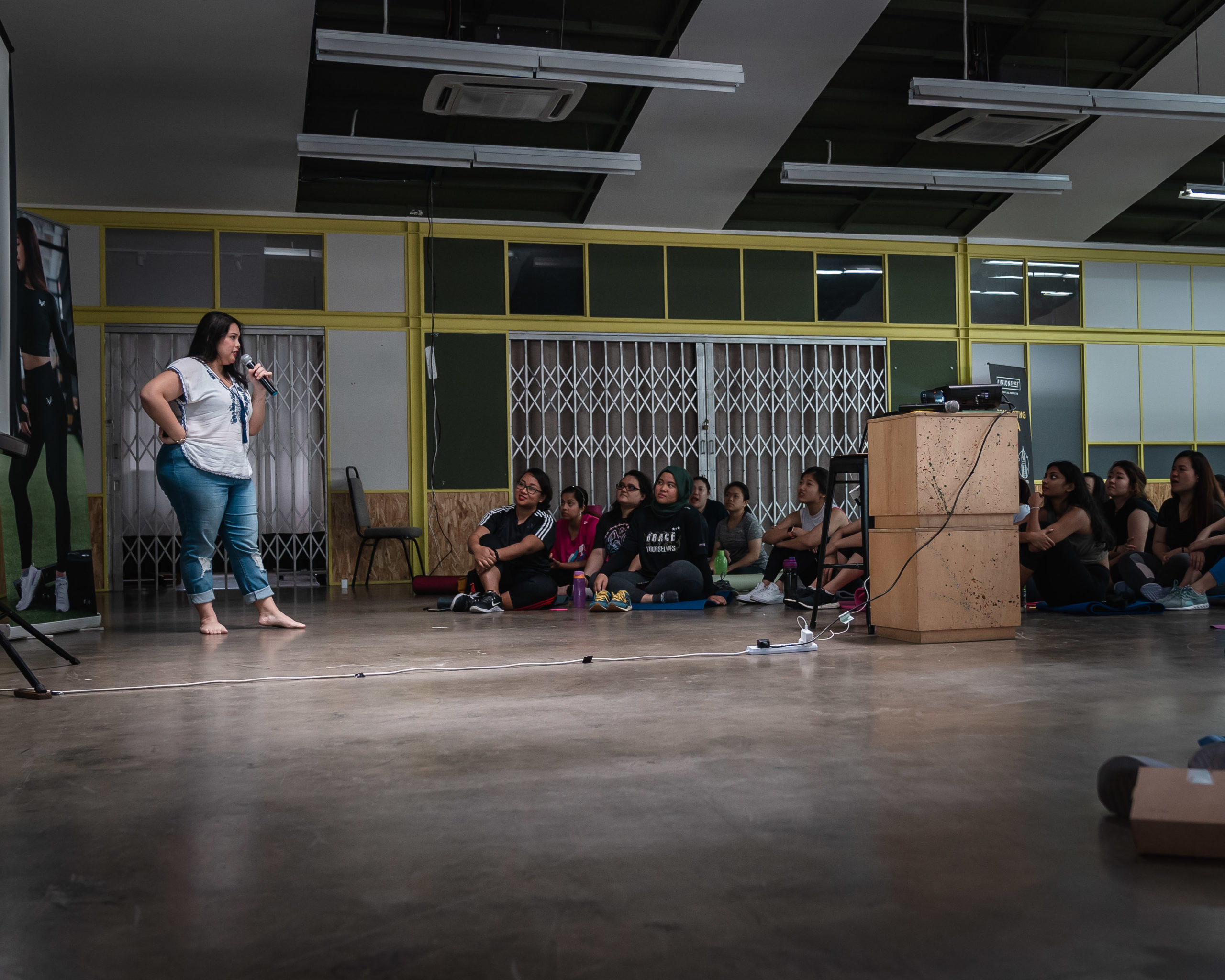“Yes, it’s OK to change your mind halfway through. No, pineapples don’t cause miscarriages. And yes, you can speak openly about sex without shame.”
Jasmine King is no stranger to awkward silences. For the past few years the outspoken 31-year-old has been on a mission to promote sex positivity in Malaysia, which is markedly conservative when it comes to matters of sex and sexual freedom.
A former national radio executive turned independent sex positivity advocate, King is passionate about provoking open, honest dialogue about sexual health and expression in the country.
“Sex positivity is about allowing people to make informed choices about their bodies and pleasure,” she said. “We all need safe spaces in which to express our different identities and sexual preferences, exercise bodily autonomy, and encourage pleasure instead of shame.”
Historically, cultural conservatism in Malaysia has made it difficult for the sex positivity movement to gain a meaningful foothold, but the work being done by advocates like King signals promising new growth.
With Malaysia’s rates of teen pregnancy on the rise, the context is ripe for change. Currently, data shows over a third (35%) of educated young Malaysians do not believe that a woman can get pregnant the first time she has sex, and 62% say they lack sufficient information on sexual health and reproductive health.
King’s highly visual, easily accessible style has attracted her an engaged following across Instagram, TikTok, YouTube, and, most recently, Clubhouse, where she hosts weekly ‘Sex Talk Thursday’ rooms encouraging open dialogue about sex. Other sex positive accounts, such as RedTalks and the popular Malay Twitter account Ilmu Seks (sex wisdom) have also gained sizeable followings in the past two years.
Over the past year, King has seen a growing public appetite for her work and content, all of which she edits and produces herself. That increasing interest has brought her message from social media posts to moderating panels for the United Nations Population Fund, as well as giving seminars at universities and running workshops for corporate clients. She also recently launched I Wish Someone Told Me, a sex podcast that aims to normalise conversations about sex and empowerment in a manner that is strongly grounded in the Asian lived experience.
“When you’re young, Asian, and curious about sex and sexuality, the first place you go is the internet – but so much sex positive content comes from overseas, and from the global West,” King said. “Growing up, I remember watching feminist YouTubers say: ‘Go to the pharmacy, get a condom, and don’t be ashamed to practice safe sex.’ But it’s not so simple in Malaysia – even grown adults still feel ashamed buying protection. I wanted to make content that was localised, accessible, and understandable to Asian youth.”

However, King is part of a small minority offering such content in a country where information on safe sex can remain inaccessible.
“Malaysia is largely conservative when it comes to speaking about anything related to sex and sexuality,” said Jaskirath Sohanpal, a capacity building officer at the Women’s Aid Organisation in Kuala Lumpur. “Conversations about sex are considered taboo, improper, and are often steeped in misinformation and myth.”
This conservatism around sex is reinforced both politically and legally, and often veers into outright oppression, with feminist activism frequently met with backlash and intimidation. This takes many forms – from the ongoing doxxing and cyberbullying of feminist cartoonists like VieN, to targeted raids on sex workers over the past year.
Government crackdowns aimed at criminalising and marginalising the LGBTQIA+ community are also common. Members of the LGBTQIA+ community are faced with disproportionate levels of discrimination, as they are deemed sexually ‘deviant’ and pathologised. The current government, in power since last March, has openly promoted programmes directed at ‘correcting’ members of the community, including conversion therapy. As Sohanpal points out, for both women and sexual minorities in Malaysia, laws that impinge on human rights and police sexual freedoms are justified as necessary measures to preserve the moral fabric of society.
In the absence of safe spaces for dialogue, digital platforms – far less regulated in Malaysia than broadcast or print media outlets – have been central to enabling new types of conversations to blossom.
King points out that online anonymity has been crucial to the success of her work, something she has taken care to safeguard by setting up protected Q&As.
“In workshops, if I open the floor to questions based on personal experiences, people don’t really want to say much,” she reflected. “But afterwards, many approach me personally or send me messages. Online, you occasionally get a brave person that will just use the comment section, which is fantastic.”
Sohanpal says that the anonymity afforded by digital spaces often directly translates to greater security.
“Anonymity allows for exploration with relative safety,” she said. “Inoculated from the cultural taboo and stigma that occurs in real life, the internet allows people space for open conversations and the sharing of sexual orientations, interests, kinks, and even advice.”
Many women I work with are surprised by the suggestion that Asian women can enjoy sexual pleasure – because, of course, many religious teachings have taught us otherwise
For King’s core audience of young, female-identifying Malaysians, sex positive openness has been nothing short of groundbreaking.
“My main interests are around demystifying Asian female pleasure, and normalising broader conversations about sex,” King shared.
“Many women I work with are surprised by the suggestion that Asian women can enjoy sexual pleasure – because, of course, many religious teachings have taught us otherwise. Workshop participants tell me, ‘I never knew sex was for us too – I thought my sole purpose was to please my husband, and I never question him in bed.’”
One workshop attendee, a Kuala-Lumpur-based writer, told the Globe that the session had been an eye-opener because of how empowering it felt. “I love how non-traditional the workshop was, and how Jasmine went beyond the biological aspects of sex education to place emphasis on pleasure,” she shared.
In Malaysia, such explicitly feminist imperatives are still novel – especially when it relates to sex.
The long shadow of the Obedient Wives Club, founded in 2011 by a group of Malaysian-Muslim women attributing domestic violence, infidelity and prostitution to ‘un-Islamic’ sex and a failure of women to satisfy their husbands, still looms in public memory.
At the time, more liberal local civil society organisations, such as the Sisters in Islam, pushed back hard on the group’s selective interpretations of the Quran, asserting that mutual love and kindness between partners was more in line with Islamic principles than reducing marriage to issues of sex or control.
However, the sentiment persists today. In March 2020, the Ministry for Women, Family and Community Development released a series of guidelines reminding women not to nag their husbands and to continue wearing makeup while at home during quarantine, which was later retracted after outcry and ridicule.

Well-aware of the cultural context in which she is working, King knows that every aspect of her advocacy runs the risk of backlash. Mindful of the fact that her work is viewed by many as controversial, she double- and triple- checks her language before publishing content to ensure it won’t ruffle too many feathers, and is deliberately sparing with what she reveals about herself and her life.
“I am very mindful of how and when I’m pushing boundaries. I know I’m one of very few people in the public sphere talking about this – but ultimately, I am trying to do the work of unlearning shame. There is empowerment in that,” she said.
Education is key to building a safer and more egalitarian environment for women and sexual minorities in Malaysia. Currently, stigma around sex education persists, and most school programmes promote abstinence-only ideals. Teaching that frames sex as something harmful or unusual can undermine the potential of such education, said Sharon A. Bong, an associate professor of gender and religious studies at Monash University Malaysia.
“Sex positivity is critical in comprehensive sexuality education, to enable young adults to speak openly and frankly about sex and sexuality in safe, non-judgemental spaces,” Bong said. “This entails a revisioning of sex education that moves beyond sex-negative emphasis on STIs, pre-marital sex, and unwanted or terminated pregnancies to empowering youth on their sexual and reproductive health and rights.”
I also display examples of sexual diversity from within Southeast Asia in order to undercut any responses that pigeonhole queer freedoms as a Western concept
According to Sohanpal, consistent advocacy for new forms of sex education is slowly paying off. Despite a disappointing delay in the implementation of state guidelines for comprehensive sex education, social attitudes towards it are slowly shifting, thanks to the burgeoning sex positivity movement and the push to safeguard sexual and reproductive health and rights.
In Malaysia, this movement currently comprises a wide variety of grassroots operations. RedTalks and the Soroptimist Puberty Organising Toolkit work to advance sex education in Malaysia, and have worked with King on initiatives like the ’Merdeka Menstrual’ forum to tackle period poverty, in which women lack access to sanitary products. Other local organisations, like the Reproductive Rights Advocacy Alliance Malaysia, take a more rights-based approach to sexual health.
While great strides have been made towards changing the narrative surrounding sex positivity, there is still more that needs to be done. Going forward, King hopes to produce more LGBTQIA+-centred content, catering to an underserved and persecuted local population. Even the most liberal, urban, and educated of Malaysian society still frequently balk at this.
In response to those who dismiss these ideas as only applicable to a Western audience, King has been developing tools that situate these concepts in Southeast Asia’s own history.
“I’ve recently built a glossary of different pronouns to use in my work, and I also display examples of sexual diversity from within Southeast Asia in order to undercut any responses that pigeonhole queer freedoms as a Western concept,” she said. “Historically, here, as well as in the Philippines and Thailand, multiple genders have been acknowledged.”
King is also currently working towards translating more content into the Malay language, to help bridge the urban-rural divide and make sure that her message is as relevant and accessible to people living in kampungs (villages) as it is to English-speaking urbanites.
She still has her eyes on the ultimate goal – building a more open and sexually accepting Malaysia.
“Sex positivity is about exploring and deconstructing norms around sex, learning what healthy relationships look like, and promoting body positivity and self-love,” she said. “And all of these require the breakdown of taboos and stigma.
More information on Jasmine King and her sex positivity project can be found here


